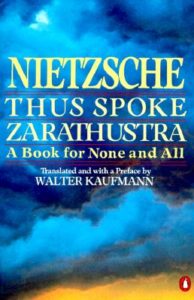This blog was originally posted on October 23, 2013 on the New Existentialist Blog. It was republished here after the New Existentialist Blog was discontinued.
Recently I returned from a trip to China where I was asked to speak at a conference entitled “Buddha from the Heart: Humanistic Psychology Maitreya Culture.” Maitreya Buddhism is a lesser-known school of Buddhist thought originating in China, particularly connected with Maitreya Buddha (i.e., future Buddha). The focus of the conference was on ways in which humanistic psychology and Buddhism, particularly Maitreya Buddhism, can help the people of China. It was an exciting opportunity to dialogue about convergences between existential-humanistic psychology and Buddhism, particularly related to how they each can positively impact the world.

Context: Religion and Psychology
It is important to discuss this with a disclaimer. Neither the conference nor this blog are suggesting that existential-humanistic psychology is a Buddhist psychology. When talking about religions and psychology, it is important that we do not reduce one to the other. Also, while there may be a place for religious psychologies, I believe that it is vitally important that existential and humanistic psychology remain unattached to religion at the foundational level in order to work with clients from their own religious or spiritual framework instead of imposing our own.
At the same time, it is interesting that existential-humanistic psychology often appears to share a great deal with the spiritual and religious wisdom traditions. With Buddhism, there certainly are a number of interesting convergences.
Convergences
One important convergence is on suffering. Buddhism and existential-humanistic psychology view suffering as a given, not something that can easily be overcome or just coped with. Additionally, both recognize the value in suffering as well as other emotions that are uncomfortable. From Buddhist and existential-humanistic perspectives, our uncomfortable emotions and suffering are something for us to explore and learn from. There are even similarities in how individuals can learn from these emotions. It is important, however, not to reduce this into thinking that existential-humanistic psychology and Buddhism approach suffering the same way or are in complete agreement.
Within Buddhism, there is a spiritual end where the eventual goal is to escape the cycle of suffering. However, this is something that one strives for over a lifetime or many lifetimes. In existential-humanistic
psychology, the goal is to change one’s experience of suffering in order to transform the experience of suffering, increase one’s selfawareness, live more authentically in the face of suffering, and achieve personal growth.
Existential-humanistic psychology and Buddhism both value the experiential realms. First, experience is understood as a valid way of knowing. In much of psychology, there is a strong rational bias and often a distrust of emotion and subjective experience. While existential-humanistic psychology and Buddhism are not irrational or antiintellectual, they recognize that there is more than one valid way of knowing. Additionally, the growth and healing process is often understood as experiential in both existential-humanistic psychology and Buddhism. One limits their growth and healing if growth and health are confined to the cognitive level and do not incorporate an experiential component.
Both value mindful awareness. I have, at times, been frustrated with the mindfulness craze in psychology. It’s not that I do not value what it has to offer, but rather that I think it is a distortion to think of this as something new. Existential psychology and other depth psychologies long have advocated for approaches quite similar to mindfulness long before mindfulness entered the psychology lexicon. Additionally, I also have some concern that mindfulness, as it originated in Buddhism, is quite different than the mindfulness that is often integrated into psychology today, particularly in the West. Despite these challenges, both existential psychology and Buddhism believe there is a value in a nonjudgmental or inquisitive awareness of one’s cognitive, emotional, and bodily experiences.
Last, both Buddhism and existentialhumanistic psychology are growth oriented and recognize human potential. Although there are many variations across the different approaches to Buddhism, there is rather consistent growth-oriented focus in which individuals, through selfdevelopment,
attempt to continually grow and embrace their Buddha nature. Similarly, existential-humanistic
psychology advocates toward helping individuals achieve their potential rather than focusing solely on overcoming problems.
Conclusion
This post has just touched upon some of the convergences of existential-humanistic psychology and Buddhism. Each of these convergences could be fleshed out in much greater detail and others could be added. While there is much to learn from being in dialogue, it is also important to take seriously the differences, particularly as both seek different ends. When only the convergences are considered, then distortion and false agreement will ensue. Through dialogue, I am confident that both Buddhism and existential-humanistic psychology can grow and advance. For existential-humanistic psychology, in particular, I believe this can further advance the field’s emergent multicultural perspectives.
~ Louis Hoffman

